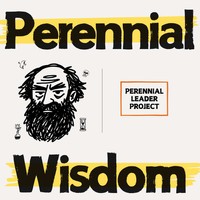

#1468
Mentioned in 25 episodes
Twilight of the idols
Book •
Twilight of the Idols, or How to Philosophize with a Hammer, is a collection of aphorisms and essays by Friedrich Nietzsche.
It represents a sharp critique of traditional philosophical and religious systems, particularly targeting what he sees as 'idols' or false beliefs.
Nietzsche's style is characterized by its provocative and often paradoxical statements, challenging readers to question established norms and values.
The work explores themes of morality, truth, and the nature of power, influencing subsequent philosophical and cultural movements.
It is considered one of Nietzsche's most accessible and influential works.
It represents a sharp critique of traditional philosophical and religious systems, particularly targeting what he sees as 'idols' or false beliefs.
Nietzsche's style is characterized by its provocative and often paradoxical statements, challenging readers to question established norms and values.
The work explores themes of morality, truth, and the nature of power, influencing subsequent philosophical and cultural movements.
It is considered one of Nietzsche's most accessible and influential works.
Mentioned by














Mentioned in 25 episodes
Mentioned by 



Stephen West

397 snips
Episode #214 ... Framing our Being in a completely different way. (Heidegger)
Mentioned by 



Stephen West

317 snips
Episode #212 ... Nietzsche and Critchley on the tragic perspective. (Amor Fati pt. 2)
Mentioned by 



Ben Wilson

199 snips
Nietzsche and Eternal Recurrence (Part 3)
Mentioned by ![undefined]()


Alex Petkus

103 snips
107 - Caesar 1: Man of Destiny
Mentioned by 



Nick Land

85 snips
Nick Land vs. Aleksandr Dugin Debate | Guests: Nick Land and Aleksandr Dugin | 10/6/25
Mentioned by 



Nick Land

26 snips
Nick Land vs. Aleksandr Dugin Debate | Philosophical Commentary
Mentioned by the host as a work that further develops the ideas presented in "The Gay Science."

20 snips
The Gay Science #1 (Preface, I.1 - I.9)
Mentioned by 



David Chapman

20 snips
Maps of Meaningness
Mentioned by ![undefined]()


Fr. Bonaventure Chapman
14 snips
What Nietzsche Got Right
Mentioned by 



Matt McManus

14 snips
Taking Nietzsche seriously
Mentioned as sometimes recommended as a starting point, but the structure is disjointed.

12 snips
Special Episode: Nietzsche Podcast Reading Guide
Mentioned by ![undefined]()


J.W. Bertolotti

11 snips
Ep. 248: Nietzsche on the Fear of Change | Perennial Wisdom
Mentioned by the speaker while discussing Nietzsche's work.

Response to Philosophy Tube
Mentioned by the podcast hosts as an 1888 book summarizing his philosophy and critiquing his society's founding myths.

Episode 178: Nietzsche as Social Critic: "Twilight of the Idols" (Part One)
Mentioned throughout the episode as the author of "Twilight of Idols", and the episode analyzes his psychological approach to philosophy.

93: The Idle Hours of a Psychologist
Mentioned by Brook Ziporyn when echoing Nietzsche's discussion of Socrates.

Experiments in Mystical Atheism with Brook Ziporyn
Mentioned by the speaker as a work written in the same year as Ecce Homo.

94: Nietzsche Reviews His Own Books
Mentioned when discussing Nietzsche's views on the senses and truth.

The Gay Science #11 (III.114-III.124)
Mentioned by ![undefined]()


Mike Watson

EP21: Is There Space for Revolutionary Thought Online? (Interview with Mike Watson)
Mentioned when discussing Nietzsche's critique of erroneous habits of thought.

92: The Four Great Errors



